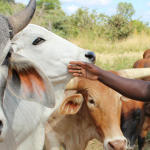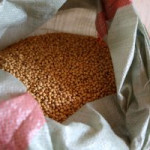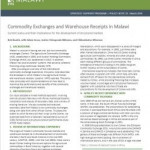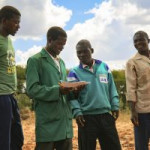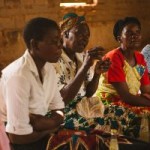Malawi strives to develop into a productive nation by increasing agricultural production. The Malawi Growth and Development Strategy III aims to transform the agricultural landscape in Malawi away from subsistence smallholders towards farming as a business. New concepts and business models can conflict with more traditional social systems in a community. So, how do smallholder >> Read more Source: Malawi Strategy Support Program
AJARE Best Paper Award: Measuring Post-harvest Losses at the Farm Level in Malawi
IFPRI Malawi congratulates Kate Ambler, Alan de Brauw, and Susan Godlonton, who received the 2018 AAERS-Wiley Blackwell Australian Journal of Agricultural and Resource Economics Award for their paper, "Measuring Post-harvest Losses at the Farm Level in Malawi." The award was presented during the 63rd Annual AARES Conference in Melbourne, Australia. About the study Reducing food >> Read more Source: Malawi Strategy Support Program
Policy Note 33: Commodity Exchanges and Warehouse Receipts in Malawi
Malawi is unusual in having two active commodity exchanges (Comex): The Agricultural Commodity Exchange (ACE), established 2006, and Auction Holdings Commodity Exchange (AHCX) Ltd., established in 2013. In addition, Malawi has several parallel ‘systems’ that advance collateral financing using warehouse receipts. Policy Note 33 distils the findings of Working Paper 25, which analysed how Malawi's >> Read more Source: Malawi Strategy Support Program
Modeling the Effectiveness of the Lead Farmer Approach in Agricultural Extension Service: Nationally-representative Panel Data Analysis in Malawi
The Lead farmer (LF), model or contact farmer, or farmer-to farmer extension approach has been traditionally part of most extension models for decades. Past LF approaches have been criticized for the selection of richer and progressive farmers as well as for limited productivity and development impact. The revived LF concept contributed to a new batch >> Read more Source: Malawi Strategy Support Program
Towards a capacity-based resilience building for social cash transfer beneficiaries in Malawi
By design, Social Cash Transfer programs (SCTP) in Malawi target the poorest section of society. But this does not mean that the “poorest” are a homogenous group. There are differences in access to land and ability to work productively. Development players must take this into account by designing interventions that provide different capacity-based packages to >> Read more Source: Malawi Strategy Support Program
